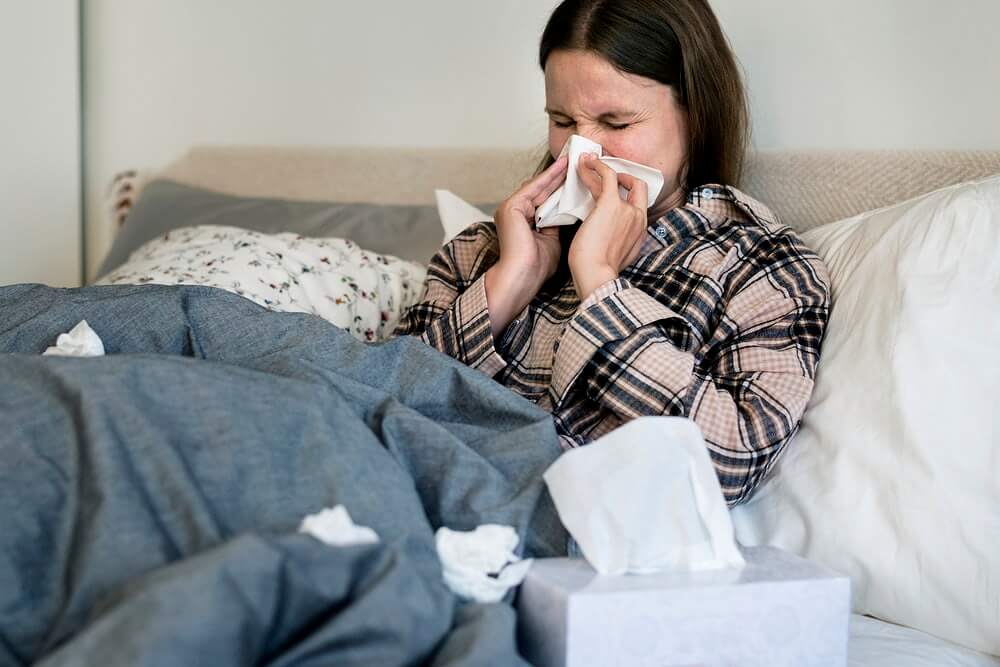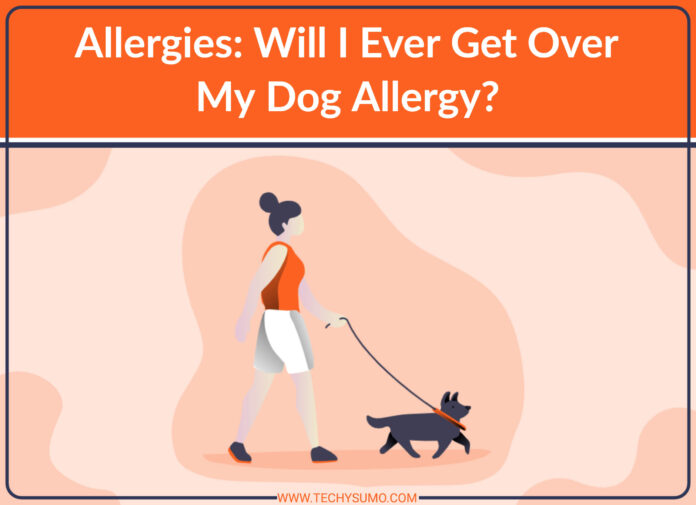We all know that getting a pet is a big commitment. There are many things to think about before you decide to bring one into your home, but what if I told you that the decision might not be yours to make? As it turns out, some people have dog allergy so severe they can’t even live in the same house as their pets. But don’t worry! This blog post will help you find the answer to this question and more.
Table of Contents
Am I allergic to dogs?
Many things can cause a runny nose, but in some cases, it may be an allergy to your dog. Allergies to dogs have been on the rise over the last decade, and they usually result from inhaling proteins produced by your pet known as “can f 1.” If you’re wondering if your pet causes these symptoms, you can take this quiz or schedule an in-home allergy test with an allergist in Philadelphia PA.
What are the symptoms?

There are many signs and symptoms of allergies to dogs. Some common ones include:
Sneezing
Coughing
Red watering eyes
Hives
Runny nose
Wheezing
Fatigue
Difficulty breathing
Nausea and vomiting Itchy nose, the roof of mouth, throat, eyes, or ears
Home Remedies
Plant supplements

Plant supplements may be a good option for you if you’re looking for a natural way to help your allergies. Quercetin is a type of flavonoid found in many fruits and vegetables. It has been shown to help reduce inflammation and histamine production, which are both associated with allergies. You can read more about quercetin and other plant supplements here. Not only for dogs, but in wilmington if you need urgent care wilmington, you should go with Wilmington Urgent Clinic.
Nasal irrigation
If you’re experiencing many nasal symptoms, nasal irrigation may be a good option for you. This involves using saltwater to rinse your nasal passages. It can help clear out allergens and mucus, and it’s been shown to be effective in reducing symptoms.
Saline sinus rinse
Another option if your nasal cavity is irritated is a saline sinus rinse. This involves using a neti pot or other solution to rinse the nose and sinuses. It can help reduce congestion, and it’s also been shown to be effective in treating allergies. The downside of this remedy, though, is that medication cannot be delivered through it.
Lifestyle tips against dog allergies

If you are allergic to your dog, there are simple changes you can make in your life that may help reduce symptoms. Here are some tips for allergies to dogs that you should try:
1. Reduce or eliminate furry pets
One of the best ways to reduce symptoms is to get rid of your pet. If possible, this would likely be the only way you could get rid of your allergies completely. This may not be an option in some cases, especially if you have other family members that want to keep the pet. Also, remember that any shedding pets can cause problems, so this tip may not help everyone with dog allergies.
2. If it’s possible, remove carpets
Carpets can be a haven for allergens, so if you’re looking to reduce your exposure, try removing them from your home. This will also make it easier to clean and keep allergies at bay. You can read more about this here.
3. Avoid contact with dogs
If you can avoid contact with dogs, it may help reduce your symptoms. This includes walking your dog or petting them if you’re allergic. It may not be an option for everyone, especially if you own a dog and can’t give him up.
4. Wash hands often
Washing your hands with soap and water before touching your face is essential to reduce symptoms associated with allergies. You should also avoid touching your eyes, nose, or mouth.
Also read How To Choose A Dog Bed.
Medical Treatment

Antihistamines
Antihistamines are very effective in reducing symptoms of allergies. They work by blocking histamine, which is a chemical associated with allergies. You can find more information on antihistamines here.
Steroid nasal sprays
Though not as common, steroid nasal spray may be an option for some people to control allergy symptoms. This type of medication works by reducing inflammation in the nasal passages. You can find more information here.
Immunotherapy
Immunotherapy, also known as allergy shots, is a treatment option that can help reduce or eliminate symptoms over time. This treatment involves getting injections of allergens that cause problems. Your doctor will likely start you on a low dose and increase it over time. This treatment is not for everyone, and it can take several years to see results.
Causes of Dog Allergies

There is still much that is unknown about the causes of dog allergies. However, some theories have been put forth. One theory is that pet dander and saliva are to blame. Dander is a term used to describe the tiny particles that come off an animal’s skin. These particles can be allergens for many people. Another theory is that the saliva of some dogs can cause allergies. This occurs when a dog licks its fur and then touches something else before it’s cleaned off, depositing saliva on the new object.
Food Allergies
Some people may experience allergic reactions to food their pet eats. If your pet has food allergies, you may need to change its diet. This can be a challenge, as it’s not always easy to find a food that your pet will tolerate. You can read more about this here.
Diagnosis of Dog Allergies
The diagnosis of dog allergies can be difficult, as there is not a specific test that can be done. Your doctor will likely ask you about your symptoms and do a physical examination. He or she may also order blood tests or skin prick tests to help identify what you are allergic to.
Takeaways
If you have allergies to dogs, there are a few things that you can try. If possible, you should avoid having a furry pet and remove carpets from your home. Also, washing your hands before touching your face is important for controlling symptoms. For some people, immunotherapy may be an option for reducing symptoms over time. If you are looking to buy a pet, many options are available beyond traditional dogs.


























